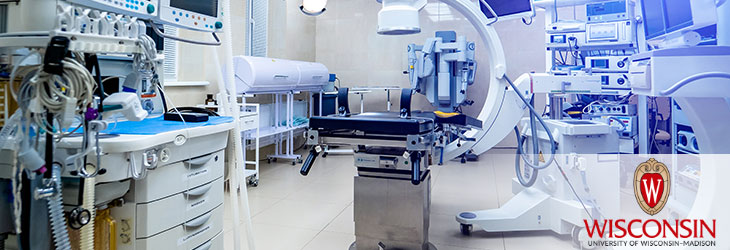Medical Devices

IMPLANTABLE PRESSURE SENSING DEVICE FOR LONGITUDINAL INTRACRANIAL PRESSURE MONITORING
WARF: P230183US01
Inventors: Daniel Cho, Jessica Blum, James Trevathan, John Puccinelli, Michael Del Signore, Lucas Cates, Ipek Naz Kadioglu, Caroline Craig, Karina Buttram, Joseph Ho, Adrienne Simpson, Vivian Woo
Overview
Measurement of intracranial pressure (ICP) can be used to determine risk levels for head trauma, hydrocephalus, and craniosynostosis in patients. In one clinical application, elevated ICP is a highly accurate measurement for determining optimal timeline and modality of therapeutic intervention for craniosynostosis patients.
Current methods for determining ICP are highly invasive, requiring a pressure sensor to be implanted through a burr hole in the dura mater, and the patient must be admitted to the intensive care unit for 24-hour observation. The anesthesia may lower the ICP providing an inaccurate measurement of ICP and there is high risk of complications, such as infection. An accurate, non-invasive ICP pressure sensor is needed to directly monitor elevated ICP in children diagnosed with craniosynostosis during their developmental stages to minimize further complications.
The Invention
UW-Madison researchers have designed a minimally invasive, mechanical ICP sensing device that can be implanted during any neurosurgery to allow for long term ICP monitoring. The mechanical ICP sensing device is a small device allowing the device to be implanted outside the dura mater and underneath the endocranial surface of the skull. The device detects compression of the device between the dura mater and the skull that correlates to an increase in ICP. The compression of the device can be monitored non-invasively through medical imaging such as X-ray.
Tech Fields
For current licensing status, please contact Jeanine Burmania at [javascript protected email address] or 608-960-9846